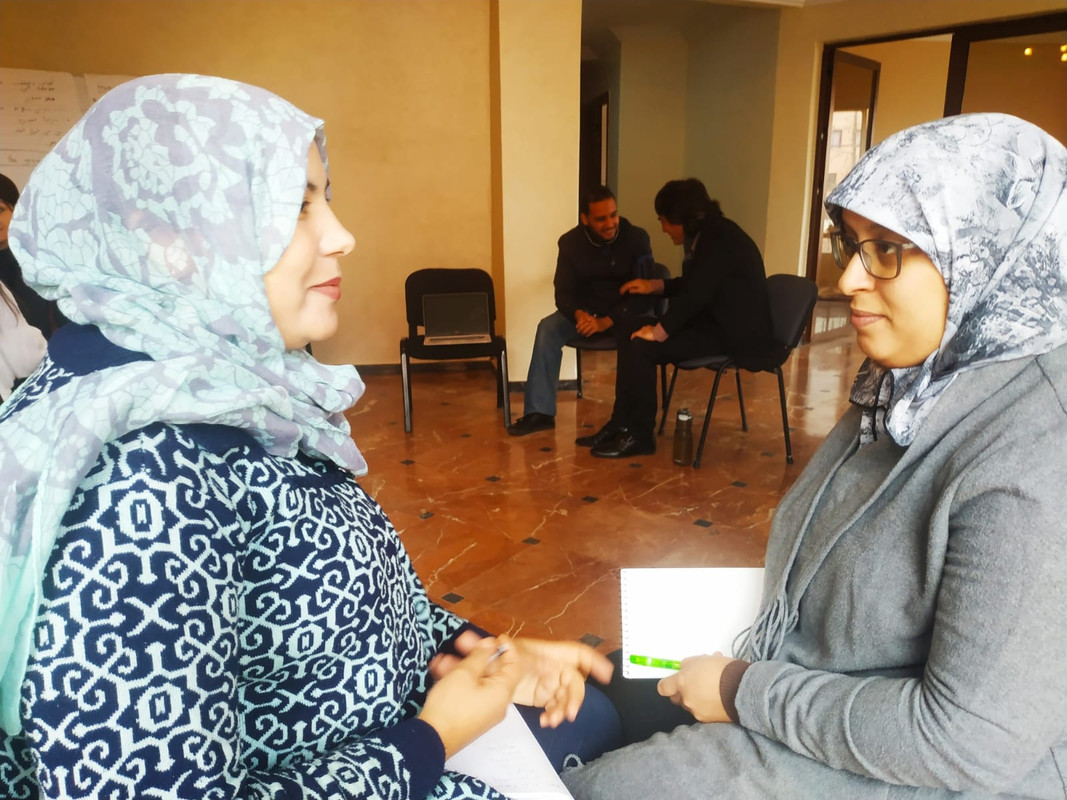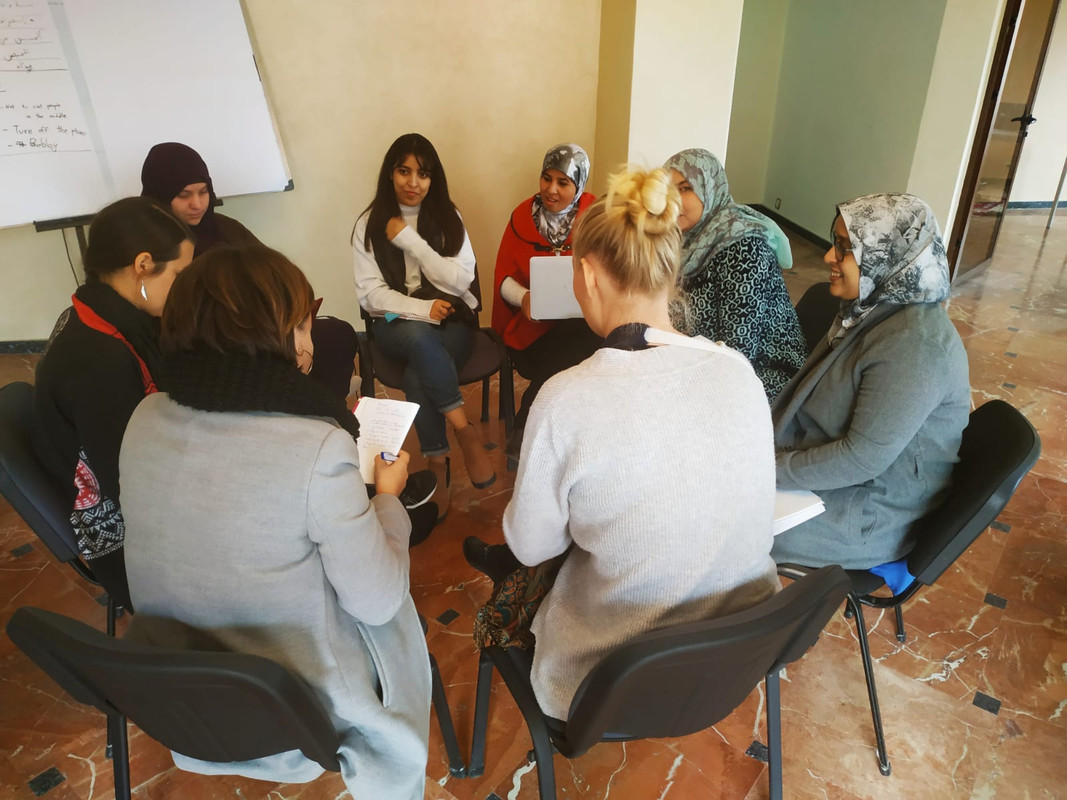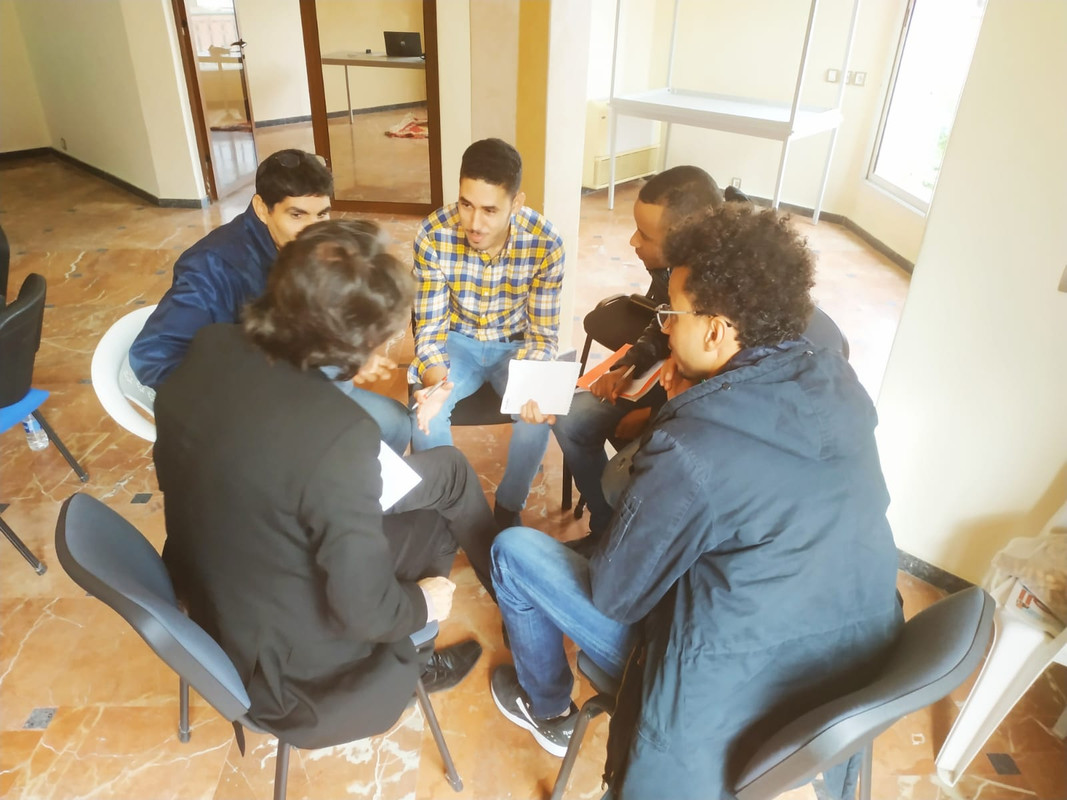Reflections and Thoughts on a Gender-Based Workshop Conducted to the Staff
Last Friday, I had the privilege and honor to conduct a workshop for the High Atlas Foundations staff members which I tentatively titled “Feminism & Masculinity”. The workshop was a pilot for a larger program that will hopefully start soon – an empowerment workshop for men from rural areas in Morocco.
As I see it, even these four lines written above are very controversial and carry with them an explosive charge. What does empowering-men have to do with Feminism (perhaps I mean Disempowering men)? Am I an expert on Feminism that I can discourse on this concept in a workshop? Who empowers whom?
In many cases, men were excluded from the feminist movement and feminist activities. There are reasons why this occurred; such as the need for creating a safe space for women to express themselves freely. Another reason was the fear that the patriarchal power structure will influence power relations inside the feminist movement and allow men to take over the discussion.
The pilot conducted for our staff involved women and men working at the High Atlas Foundation. For me the variety of people joined together in a circle for the workshop are a community who shares mutual values, ceremonies and areas, as well as hierarchy, a sense of shared identity, of caring and solidarity among each other. This is especially important for me as a facilitator because it enables a couple of things to happen during the workshop:
- It enables me, as a facilitator, to believe in the strength of the group: that the members want to remain a community and that they are strong enough to challenge themselves with controversial topics.
- It provides a fertile ground for personal change and growth for each individual inside the group.

The HAF office, as it does, became a space for people to freely express themselves. We talked about many difficult issues that often times people try to avoid. We talked about differences between men and women, about money and the distribution of resources. We talked about hierarchy and decision-making, about personal beliefs, about violence, about polygamy, about privilege, about religion, about feminism and about state law. We shared stories of our personal lives; of our childhood, our parents and partners. We honored the importance of sincerity and communication. We talked about empathy and we talked in an empathic way. We hugged and cried end expressed our feelings.
We used empathy when we discussed the lives of men and women and we reflected how social tracking under patriarchic society suppressed us both, men and women, but from different aspects.

Most workshops are one-sided: either feminist workshops that engage only women, or “Men’s sharing circles” that challenge patriarchic masculinity but ignore feminism. This workshop, however, aims to discuss masculinity but while always keeping the goal of affecting power relations and dynamics between men and women – both in the private and the public sphere.
As innovative as this might sound, it also feels very natural to connect between men’s and women’s struggle to actively challenge patriarchal hegemony.
The High Atlas Foundation has been conducting, for the past fifteen years, self-empowerment workshops for women all over rural Morocco. Many of these workshops were a first step towards opening women’s agricultural and artisanal cooperatives. These efforts resulted into programs that have definitely challenged the relationship between men and women in local communities. A main goal behind this new workshop are communities of women and menwho envision together the lives they want to live and decide together on the path for getting there.

The day after the workshop seemed to be an ordinary day in the office – everybody was back to their business, managing daily challenges. Yet, everyone looked very happy and asked me when the next workshop takes place. In my opinion, creating an opportunity to discuss challenging topics strengthened the sense of community in our workplace and I know my colleagues appreciate working in a place that enables learning, personal growth and challenging discussions.